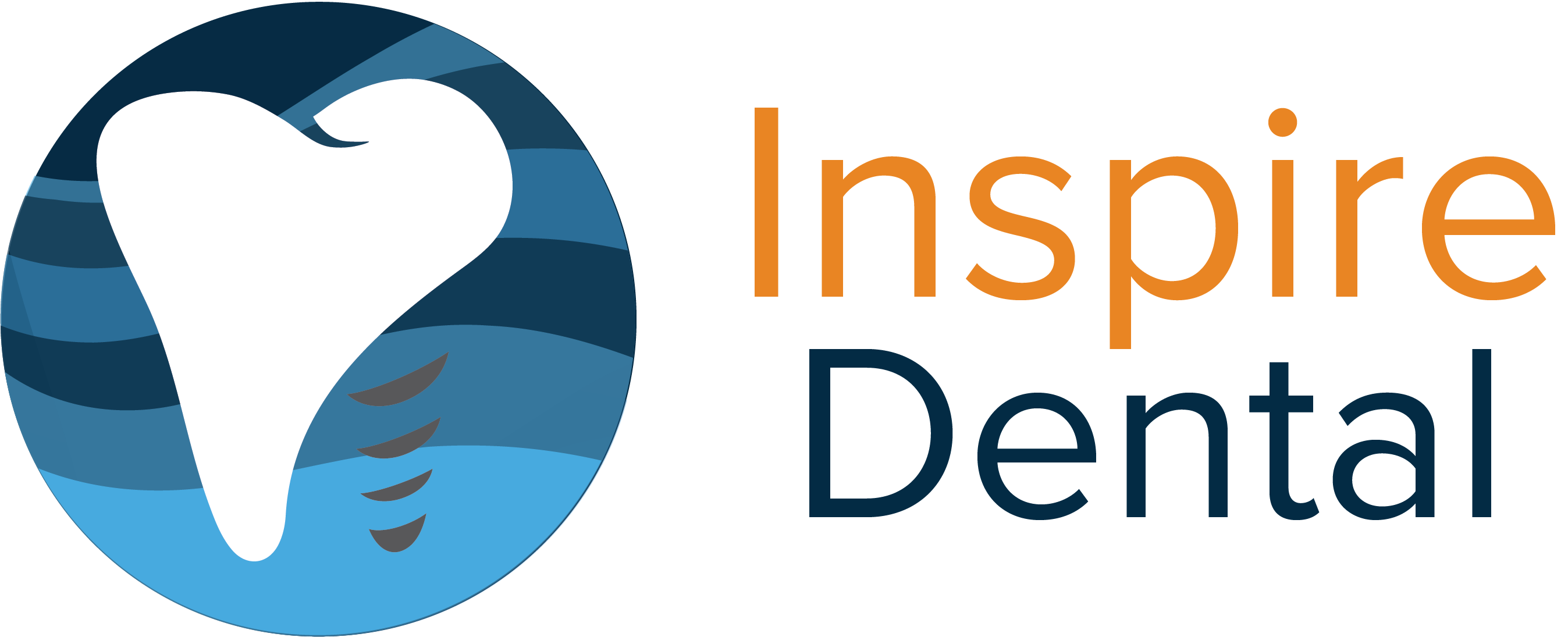
Gum disease management involves a combination of professional dental care and at-home oral hygiene practices to prevent, treat, and control periodontal disease. For residents of Ottumwa, Iowa, understanding the basics of gum disease and its management is crucial for maintaining optimal oral health.
Key Takeaways:
- Regular dental check-ups are essential for early detection and treatment of gum disease
- Proper brushing and flossing techniques are fundamental to gum disease prevention
- Professional cleaning by a dentist or hygienist is necessary to remove tartar buildup
- Lifestyle changes, such as quitting smoking, can significantly improve gum health
- Advanced treatments like scaling and root planing may be needed for severe cases
- Ongoing maintenance is critical to prevent gum disease recurrence
Understanding Gum Disease
Gum disease, also known as periodontal disease, is a common oral health issue that affects many adults in Ottumwa and across the United States. It begins with the buildup of plaque, a sticky film of bacteria that forms on teeth. When not removed regularly, plaque can harden into tartar, leading to inflammation of the gums.
The early stage of gum disease is called gingivitis, characterized by red, swollen gums that may bleed easily during brushing or flossing. If left untreated, gingivitis can progress to periodontitis, a more severe form of gum disease that can cause gum recession, bone loss, and eventually tooth loss.
Recognizing the Signs of Gum Disease
Being aware of the symptoms of gum disease is crucial for early intervention. Some common signs include:
- Persistent bad breath
- Swollen or tender gums
- Gums that bleed easily
- Receding gum line
- Loose or shifting teeth
- Changes in bite or tooth alignment
If you notice any of these symptoms, it’s important to schedule an appointment with your Ottumwa dentist promptly.
The Importance of Prevention
Preventing gum disease is far easier and less costly than treating it once it has progressed. A solid preventive routine includes:
Daily oral hygiene
Brush your teeth at least twice a day using a soft-bristled toothbrush and fluoride toothpaste. Floss daily to remove plaque and food particles between teeth that your toothbrush can’t reach.
Regular dental visits
Schedule check-ups and professional cleanings with your Ottumwa dentist every six months, or more frequently if recommended.
Healthy lifestyle choices
Avoid smoking and limit alcohol consumption, as these habits can increase your risk of gum disease.
Professional Cleaning and Scaling
Professional dental cleanings are a cornerstone of gum disease management. During these appointments, your dentist or hygienist will:
- Remove plaque and tartar from above and below the gum line
- Polish teeth to remove stains and smooth surfaces
- Assess your gum health and measure pocket depths
- Provide personalized oral hygiene instructions
For more advanced cases of gum disease, your dentist may recommend scaling and root planing. This deep cleaning procedure involves removing tartar from below the gum line and smoothing the root surfaces to promote healing and reattachment of the gums to the teeth.

Advanced Treatments for Gum Disease
When non-surgical treatments aren’t sufficient, your Ottumwa dentist may suggest more advanced procedures:
Pocket reduction surgery
This surgical procedure involves lifting back the gums to remove tartar deposits and reduce the depth of periodontal pockets.
Gum grafts
For areas with significant gum recession, tissue grafts can help restore the gum line and protect exposed tooth roots.
Bone grafts
In cases of severe bone loss, grafting procedures can help regenerate lost bone and support tooth stability.
The Role of Antibiotics in Gum Disease Treatment
Antibiotics may be prescribed as part of gum disease treatment to help control bacterial infection. These can be in the form of:
- Oral antibiotics
- Antibiotic mouth rinses
- Topical antibiotics applied directly to the affected areas
Your dentist will determine if antibiotics are necessary based on the severity of your condition and your overall health.
Maintaining Gum Health After Treatment
After receiving treatment for gum disease, maintaining good oral hygiene is crucial to prevent recurrence. This includes:
- Following your dentist’s instructions for at-home care
- Using any prescribed medications or mouth rinses as directed
- Attending follow-up appointments for monitoring and maintenance cleanings
The Impact of Diet on Gum Health
A balanced diet plays a significant role in maintaining healthy gums. Foods that can benefit gum health include:
- Crunchy fruits and vegetables that stimulate saliva production
- Foods rich in vitamin C, which supports gum tissue health
- Dairy products that provide calcium for strong teeth and bones
Conversely, limiting sugary and starchy foods can help reduce plaque buildup and protect your gums.
Managing Gum Disease With Underlying Health Conditions
Certain health conditions, such as diabetes, can increase your risk of gum disease and complicate its management. If you have a chronic health condition, it’s important to:
- Inform your dentist about your medical history
- Keep your condition well-controlled through proper medical care
- Be vigilant about your oral hygiene routine
Your Ottumwa dentist can work with your primary care physician to ensure comprehensive care that addresses both your oral and overall health needs.
The Psychological Impact of Gum Disease
Dealing with gum disease can be stressful and may affect your self-esteem, especially if it leads to visible changes in your smile. Your dentist can provide support and resources to help you cope with these challenges, including:
- Discussing cosmetic options to improve the appearance of your smile
- Referring you to a mental health professional if needed
- Providing education to help you feel more in control of your oral health
Gum Disease Management For Seniors
As we age, the risk of gum disease increases. Seniors in Ottumwa should be particularly vigilant about their oral health. Some considerations for older adults include:
- Adapting oral hygiene routines to accommodate physical limitations
- Being aware of how medications may affect oral health
- Regular dental check-ups to monitor for age-related changes in oral health
The Cost of Gum Disease Treatment
The cost of gum disease treatment can vary widely depending on the severity of the condition and the necessary procedures. Many dental insurance plans cover preventive care and some treatment options. It’s important to:
- Discuss treatment costs with your dentist upfront
- Check with your insurance provider about coverage
- Ask about payment plans or financing options if needed
Investing in gum disease treatment can save you money in the long run by preventing more serious dental problems.
Choosing the Right Dental Professional For Gum Disease Management
When seeking care for gum disease in Ottumwa, consider:
- The dentist’s experience with periodontal treatments
- The range of services offered at the practice
- Patient reviews and testimonials
- The practice’s approach to patient education and preventive care
Don’t hesitate to ask questions and discuss your concerns with potential providers to find the best fit for your needs.
The Future of Gum Disease Treatment
Research into gum disease management is ongoing, with promising developments on the horizon. Some areas of focus include:
- Improved diagnostic tools for early detection
- Novel antimicrobial treatments
- Regenerative therapies to restore lost gum and bone tissue
Stay informed about new treatments by discussing advancements with your Ottumwa dentist during your regular check-ups.
Gum Disease and Overall Health
Emerging research continues to reveal connections between gum disease and various systemic health issues, including:
- Heart disease
- Stroke
- Respiratory infections
- Pregnancy complications
This underscores the importance of gum disease management not just for oral health, but for your overall well-being.
| Gum Disease Stage | Symptoms | Recommended Treatment |
|---|---|---|
| Gingivitis | Redness, swelling, bleeding gums | Professional cleaning, improved home care |
| Early Periodontitis | Gum recession, shallow pockets | Scaling and root planing, antimicrobial therapy |
| Advanced Periodontitis | Deep pockets, bone loss, loose teeth | Surgical interventions, possible tooth extraction |
| Risk Factor | Impact on Gum Health | Mitigation Strategies |
|---|---|---|
| Smoking | Increased inflammation, reduced healing | Smoking cessation programs, nicotine replacement therapy |
| Diabetes | Higher susceptibility to infection | Blood sugar control, more frequent dental check-ups |
| Poor Nutrition | Weakened immune response | A balanced diet, vitamin supplements if needed |
- Steps for effective at-home gum care:
- Brush teeth twice daily with fluoride toothpaste
- Floss at least once a day
- Use an antimicrobial mouthwash
- Replace your toothbrush every 3-4 months
- Consider using an electric toothbrush for more thorough cleaning
Community Resources for Gum Health

Ottumwa residents have access to various resources to support their gum health:
- Local dental clinics offering free or low-cost screenings
- Community health fairs with oral health education
- School-based dental sealant programs for children
Take advantage of these resources to maintain your gum health and prevent disease progression.
The Role of Genetics in Gum Disease
While oral hygiene is crucial, genetic factors can influence your susceptibility to gum disease. If you have a family history of periodontal problems, inform your dentist so they can tailor your prevention and treatment plan accordingly.
Gum Disease Management During Pregnancy
Pregnant women are at increased risk for gum problems due to hormonal changes. If you’re expecting, it’s important to:
- Maintain excellent oral hygiene
- Attend regular dental check-ups
- Address any gum issues promptly to protect both your health and your baby’s
Addressing Gum Recession
Gum recession is a common consequence of gum disease that can lead to tooth sensitivity and an increased risk of decay. Treatment options include:
- Gum grafting procedures
- Pinhole surgical technique
- Use of desensitizing agents for exposed roots
Your Ottumwa dentist can recommend the most appropriate treatment based on the extent of your recession.
The Importance of Patient Education
Understanding gum disease and its management is key to successful treatment outcomes. Your dental team should provide comprehensive education on:
- Proper brushing and flossing techniques
- The use of interdental cleaners
- The importance of regular dental visits
- How to recognize signs of gum disease progression
Don’t hesitate to ask questions and seek clarification on any aspect of your gum health care.
Conclusion
Effective gum disease management requires a partnership between you and your Ottumwa dental professional. By combining diligent home care with regular professional treatments and a healthy lifestyle, you can maintain healthy gums and a beautiful smile for years.
Early intervention is key, so don’t delay seeking care if you suspect you may have gum disease. Your oral health is an investment in your overall well-being, and with proper management, you can enjoy the benefits of a healthy mouth throughout your life.
For more information, you can visit our website or contact us directly; we’re here to help you every step of the way!
